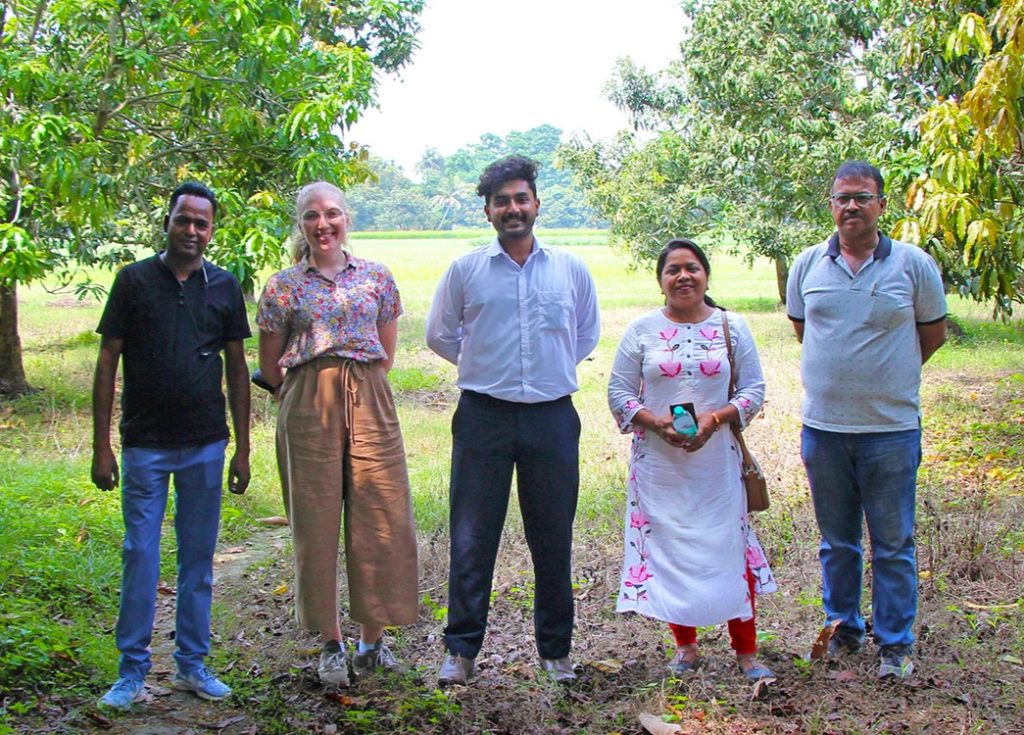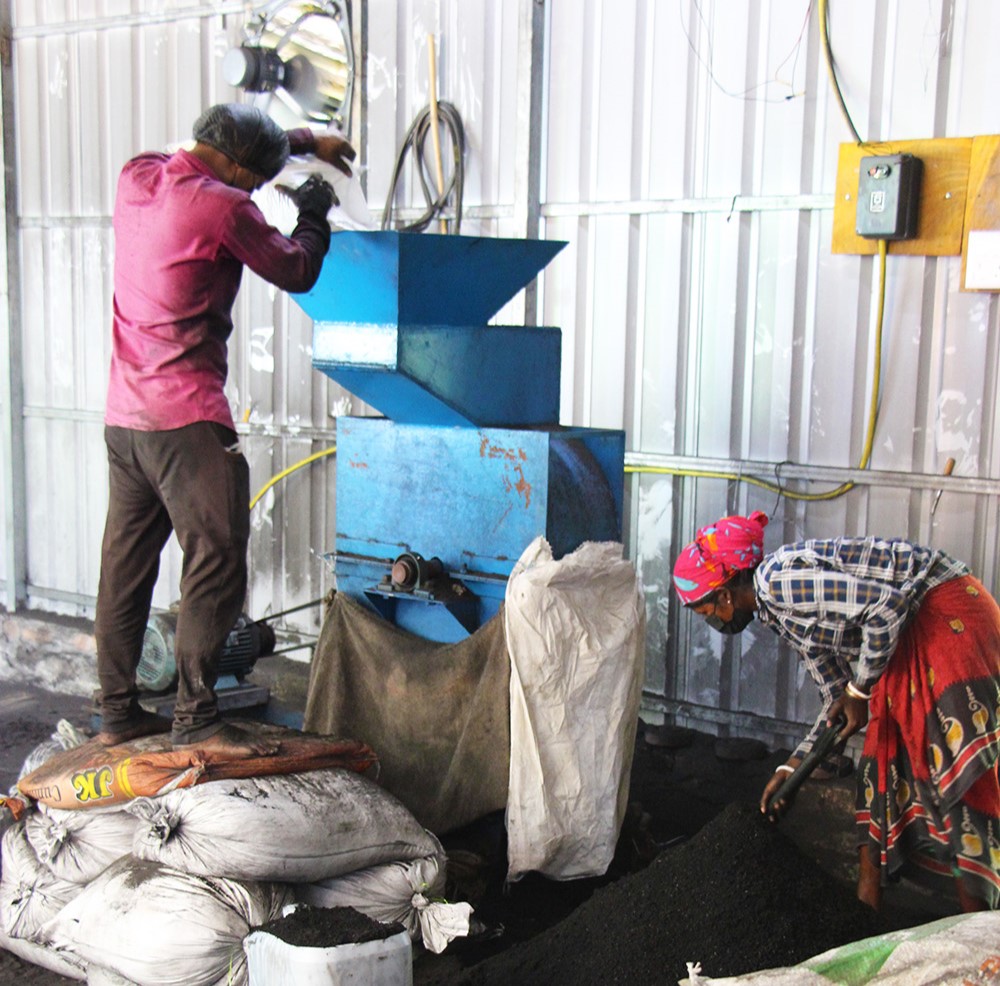We receive credits for removing over 4,000 tons of carbon dioxide from the atmosphere and storing it in the soil in India. This process not only helps combat climate change but also enhances soil quality for local farmers. Additionally, residents benefit economically by producing and selling the biochar as a byproduct of their cooking.
West Bengal, India, October 2024 – Carbon Standards International AG (CSI) has issued atmosfair credits recognizing our biochar project in India for permanently sequestering 4,273 tons of CO₂. Experts from the certification body CERES-CERT AG verified these negative emissions after visiting the project site east of Kolkata, where biochar is produced, collected, and processed using wood gasification stoves. With this achievement, atmosfair becomes the first climate protection organization globally to receive carbon reduction credits for utilizing charcoal from top-lit updraft (TLUD) stoves.

Our local partner Moulindu Barnerjee is proud of this pioneering achievement: “We were already happy that families emitted less CO₂ than before when cooking with the TLUD stoves. But now we are really making climate protection complete: we are producing a fertilizer from the biochar that makes fields more fertile. And the carbon stays in the soil for centuries.” In order to receive CO₂ credits for this, atmosfair project manager Klara Kellner worked closely with the certifiers: “CSI had to revise its calculation methods for our new project, as it did not previously certify the production of biochar in efficient stoves. We gave them intensive feedback on this – and made the work easier for other climate protection organizations with similar projects.”
Successful collaboration to be expanded
To process the biochar and enrich it with nutrients, we built a factory in Kaukepara together with Moulindu Barnerjee in 2023, which has been producing fertilizer since January 2024. There, our 37 employees crush the biochar using industrial machines and mix it with compost and limestone.
The demand for climate-friendly fertilizer exceeds our supply, so we will triple the capacity of the production plant in November. We will then be able to process 900 tons of biochar per month in Kaukepara. From January, we are planning to build another fertilizer plant west of Kolkata.

In order to fully utilize the larger capacities, we need more TLUD stoves that produce biochar. So far, we have used our climate protection contributions to subsidize over 30,000 cooking devices for families in West Bengal. These families sell the biochar produced during cooking to a total of 60 field workers from our network, who transport the charcoal to the factory. This enables the families to finance their children’s education, among other things. Before the fertilizer factory was completed, the coal was used as CO₂-neutral fuel by the catering industry.
Climate protector biochar
The porous structure of biochar binds nutrients and stores water. When farmers apply the fertilizer to their fields, beneficial microorganisms that live in the soil benefit as well. The biochar itself is hardly broken down and remains unchanged in the soil. With each planting season, the soil stores more carbon. In addition, the fertilizer from the factory replaces conventional nitrogen fertilizer, the production and use of which generates greenhouse gases.
TLUD stoves are wood gasifiers which do not burn but pyrolyze the wood – unlike normal stoves. This is achieved by limiting the supply of oxygen to the interior. The heat causes combustible gases to escape from the wood, which can be ignited and used for cooking. What remains in the stove at the end is pure charcoal. The plants from which the wood originates took the carbon from the CO₂ in the atmosphere during their growth phase. In this way, we ultimately ensure negative emissions with the biochar.
You can find out more on the project page.


 Share
Share Tweet
Tweet